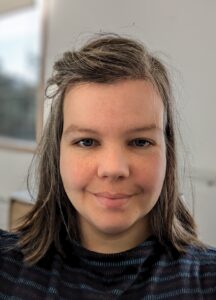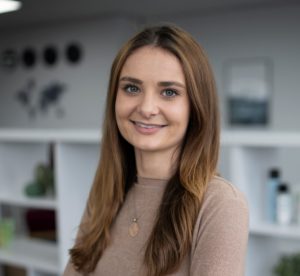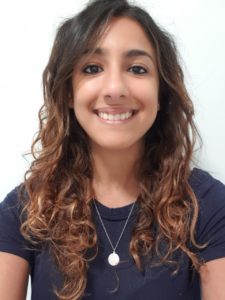Network for Early-Stage Toxicologists (NEST)
The BTS Network for Early-Stage Toxicologists (NEST) is an inclusive network with the remit of actively representing its members within the BTS and wider toxicology arena. It aims to be innovative in supporting, nurturing, educating, and recruiting individuals in the early stages of their toxicology careers. We are here to support toxicologists with less than 10 years of experience (excluding breaks).
As a committee we have numerous roles which include running NEST specific social media, organising the networking event at the BTS Annual Congress, supporting the BTS mentoring scheme and helping to promote toxicology as a career at career fairs, and in the past producing the ‘Flying the NEST’ podcast. If you are interested in joining the mentoring scheme or discussing your research via our podcast then do get in touch, we would love to hear from you!
Get in touch via e-mail: nest@thebts.org
NEST Sub-committee

Barbara currently works as a Technical Expert in Toxicology for Syngenta, specialising in predictive and mechanistic toxicology and endocrine disruption.
Before joining Syngenta in 2023, she completed her PhD in Environmental Health Sciences at Masaryk University, Czech Republic, and worked on a post-doc position with the UK Health Security Agency on the GOLIATH project.
Both, her PhD project and post-doc at the UKHSA aimed at increasing regulatory acceptance and the development of in vitro test methods for human developmental neurotoxicity, endocrine, and metabolic disruption.
She is passionate about New Approach Methodologies for human health hazard and risk assessment, and about supporting early stage scientists in their professional development.
In her free time she likes to spend time with her family and explore the Great Outdoors.

João works at Imperial Brands as a product stewardship toxicologist, with an important role in the human health risk assessment and regulatory compliance of oral nicotine products including nicotine pouches and SNUS.
He completed a BSc in Forensic Science at Egas Moniz School of Health & Science and an MSc in Forensic Toxicology at the University of Huddersfield.
Soon after finishing his master’s, João worked at the stability department at Recipharm as a quality control analyst before joining Imperial Brands in 2022.
He has an interest in the study of adverse outcome pathways and in silico tools, and in his spare time, enjoys playing music and cooking.
After completing my BSc in Biological Sciences at the University of Leicester and MSc Toxicology degree from the University of Birmingham, I joined Unilever’s Safety and Environmental Assurance Centre (SEAC) in 2017 as a toxicologist and consumer product risk assessor.
Since joining Unilever, my focus has been on exposure led next generation risk assessment (NGRA) for consumer product ingredients. My current role as a capability build platform/project lead focuses on driving development and application of new approach methodologies (NAMs) for hazard and exposure assessment, and utilising integrated computational modelling approaches, in order to answer skin allergy and systemic safety questions. I also directly support our beauty and personal care business through my role as a risk assessor.
I am a member of The British Toxicology Society (BTS) Network for Early Stage Toxicologists (NEST) Sub-Committee, and am co-opted onto the BTS Education, Training and Career Development Sub-Committee.

Emma currently works as an experimental Toxicologist at the UK Health security Agency. Her current work is focused on validation of a non-animal test method related to endocrine disputing chemicals and non-genotoxic carcinogenesis for human health hazard assess
ment in collaboration with Defra. Whilst in this role Emma has gained an interest in international toxicological regulation as well as development of NAM’s. Previously she studied Biochemistry specialising in genetics as an undergraduate, continued by a Masters in Toxicology at the University of Birmingham graduating in 2022.
Nevine is currently a PhD student at the University of Hertfordshire. Her project is a collaboration with the U.S Army and is sponsored by the Defense Threat Reduction Agency (DTRA). Her project involves investigating various decontamination techniques and procedures for mitigating the dermal absorption of chemical warfare agents.
Prior to embarking on a PhD, Nevine was already part of the Centre of Topical Drug Delivery and Toxicology (TDDT) and played an important role in the evidence-based development of the Primary Response Incident Scene Management (PRISM) guidance which provides strategic, tactical and operational guidance on mass casualty decontamination during a chemical incident. Prior to joining TDDT Nevine completed a Masters degree in Biomedical and Molecular Sciences from King’s College London with a focus on genetics and environmental toxicology.

After completing my BSc in Forensic Science at Keele University and my MSc in Forensic Investigation at Cranfield University, I went on to work within the field of forensic toxicology at Eurofins Forensic Services as a reporting scientist. I worked on reporting and peer reviewing cases that related to a range of drink and or drug driving traffic offences and when required, presented findings in court.
I then moved away from forensic toxicology and joined Imperial Brands as a product stewardship toxicologist where I focus on risk assessing vape products for their human health risks and ensuring compliance with various regulatory authorities.
Mesha currently works at Unilever’s Safety, Environmental, and Regulatory Sciences (SERS) as a predictive toxicologist. Mesha specialises in utilising in silico predictions and read across as alternatives to animal testing within human health business, capability, and regulatory contexts. Her passion lies in advancing knowledge in new approach methodologies (NAMs) and applying this to next generation risk assessments (NGRA).
Before joining Unilever, she completed a MSc in Toxicology at the University of Birmingham and a BSc in Chemistry at Liverpool John Moores University.
She enjoys exercising, reading, and spending time with loved ones in her spare time.
Flying the NEST podcast
NEST on Social Media



